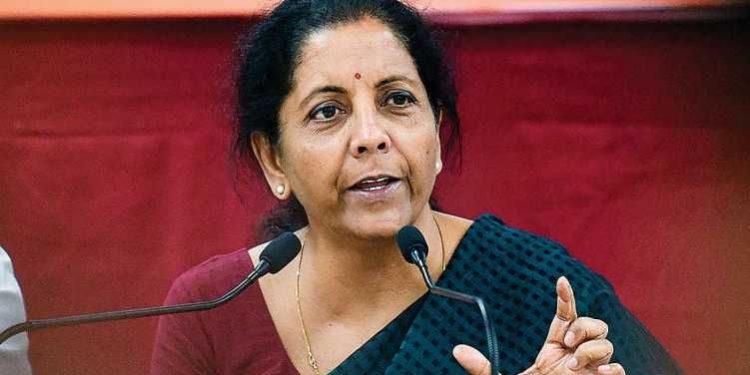New Delhi: With GDP growth sliding to a six-year low of 5 per cent in the April-June quarter along with several sectors facing a slowdown, Finance Minister Nirmala Sitharaman Saturday announced a fresh set of measures worth around Rs 60,000 crore to boost exports and the housing sector.
The key measures include extending the scheme of reimbursement of taxes and duties for export promotion, fully automated electronic refund for Input Tax Credits (ITC) in GST, revised priority sector lending norms for exports and expanding the scope of Export Credit Insurance Scheme (ECIS).
An inter-ministerial working group has also been formed to monitor export finance. Accordingly, the scheme for Remission of Duties or Taxes on Export Product (RoDTEP) was announced which will replace Merchandise Exports from India Scheme (MEIS) for textiles.
In effect, RoDTEP will more than adequately incentivise exporters than existing schemes put together. The revenue foregone on this account is projected at up to Rs 50,000 crore. However, existing dispensation in textiles of MEIS plus old ROSL scheme will continue up to December 12, 2019.
Textile and all other sectors which currently enjoy incentives upto 2 per cent over MEIS will transit into RoDTEP from January 1, 2020. Sitharaman also announced that Export Credit Guarantee Corporation (ECGC) will expand the scope of export credit insurance service (ECIS).
Effectively, this will offer higher insurance cover to banks lending working capital for exports. Further, Sitharaman revealed that Priority Sector Lending (PSL) norms for export credit have been examined and that the enabling guidelines are under consideration of the RBI.
The new norms, if implemented, are expected to release an additional Rs 36,000 crore to Rs 68,000 crore as export credit under priority sector. Sitharaman announced to reduce turnaround time for exports by leveraging technology and benchmarking it to Boston and Shanghai ports.
Furthermore, the government will provide Rs 1,700 crore for export guarantees and to cut credit cost for the exporters. Other measures like creation of Special dispensation for facilitating and on-boarding ‘handicrafts artisans and handicraft cooperatives’ directly on e-commerce portals for exports were also announced.
In addition, Sitharaman said that India will organise annual mega shopping festivals at four locations with four themes across the country in March, 2020. The minister came out with several measures to prop up the country’s housing sector which is considered as one of the main job creators.
Now there would be relaxed ECB norms for housing sector. Further, interest on house building advance would be lowered by linking it with 10-year government securities. Sitharaman said that there would be special window for affordable and middle-income housing.
Under this, a special window to provide last-mile funding for housing projects which are non-NCLT, non-NPA cases to complete unfinished projects. For this, a fund of Rs 10,000 crore would be contributed by the government and “roughly the same size by outside investors.”
The fresh set of measures to boost the economy has come in the wake of sinking business sentiment across the industry. With most engines of growth stuttering, the Reserve Bank of India recently lowered its GDP forecast and pegged it at 6.9 per cent in 2019-20.
Several rating agencies and research firms expect the growth to be in the range of 6.5-7 per cent. Besides domestic consumption slowdown, the external factors remain adverse threatening to pull down the economy. A lingering US-China trade war and fears of a global recession could make things worse.
(IANS)






































